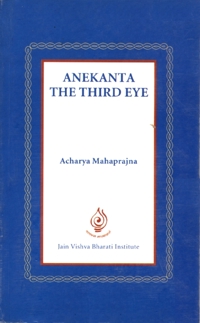
Truth is attained through an attitude bereft of obstinacy. The basis of truth lies in a compliant state and the base of untruth lies in obstinacy. Obstinacy snowballs in relation to others. It snowballs when greater importance is given to the other. There are many types of obstinacy: sectarian, obstinate links with family and society, caste and national fundamentalism. The root cause of this is obsession with others, giving others great importance. A nation blindly manufactures weapons. On asking why they did so, they say that otherwise the balance would be disrupted. And so to keep the balance they too manufacture weapons not, as they say, for war. This kind of thinking is also based on others, i.e., it is based on the other peoples actions. This becomes one reason for obstinacy. Finding fault with others, accusing others are activities born out of paying great attention to others.
There is a story. A cowherd came to a town with his wife. The bullock cart was full of goods. He parked the cart at a street junction and began unloading the goods. The cowherd picked up a container of butter and handed it to his wife. The container fell and broke and all the butter spilled on the mud. The cowherd was livid and shouted, "How stupid you are! How much of a loss you have made me incur. Why did you not hold the container properly!"
The wife replied, "The mistake is not mine, it is yours. You never gave me the container in my hands. You left it even before I was able to hold it and are now blaming me unnecessarily."
Both began blaming each other and a fight ensued. When the other is held at fault then a fight is inevitable. They were so engrossed in the fight that they did not notice dogs gathering to lick the butter from the ground and gradually move on to the pots of milk and buttermilk and eat that up too. Sugar and other things fell to the ground and got wasted. Without any sale the whole cart was empty.
At all times when man does not see himself but finds fault with others there is bound to be conflict, the sparks of conflict begin to fly. This conflict cannot be stopped.
This event could have followed another course: The pot of butter breaks. The cowherd says, "Oh my carelessness broke the pot." The wife would say, "No, no it is my fault. You gave me the pot of butter to hold, and I was careless and let it fall. It is not your fault." By both of them taking the blame the matter could have ended.
The same event and two descriptions. In one, man sees only the other and in the second, he sees himself. In the first instance where man looks only at others, problems are bound to arise. In the second instance where man sees himself, solutions come easily.
The ailing man never thinks that his illness is due to his own violations. He blames circumstances for it. Even to the doctor he does not tell the truth. He does not want to say that because of unhealthy eating habits this problem came about. He talks of everything else but not the root cause. The doctor is thus not able to grasp the real factor. He guesses the diagnosis and so the treatment is not successful.
 Acharya Mahaprajna
Acharya Mahaprajna
